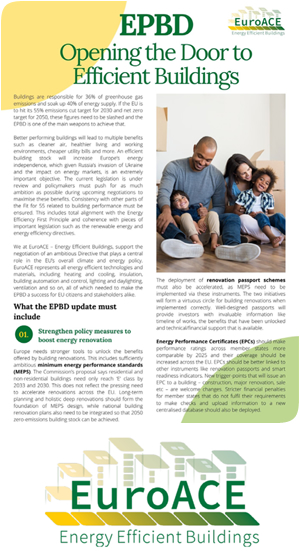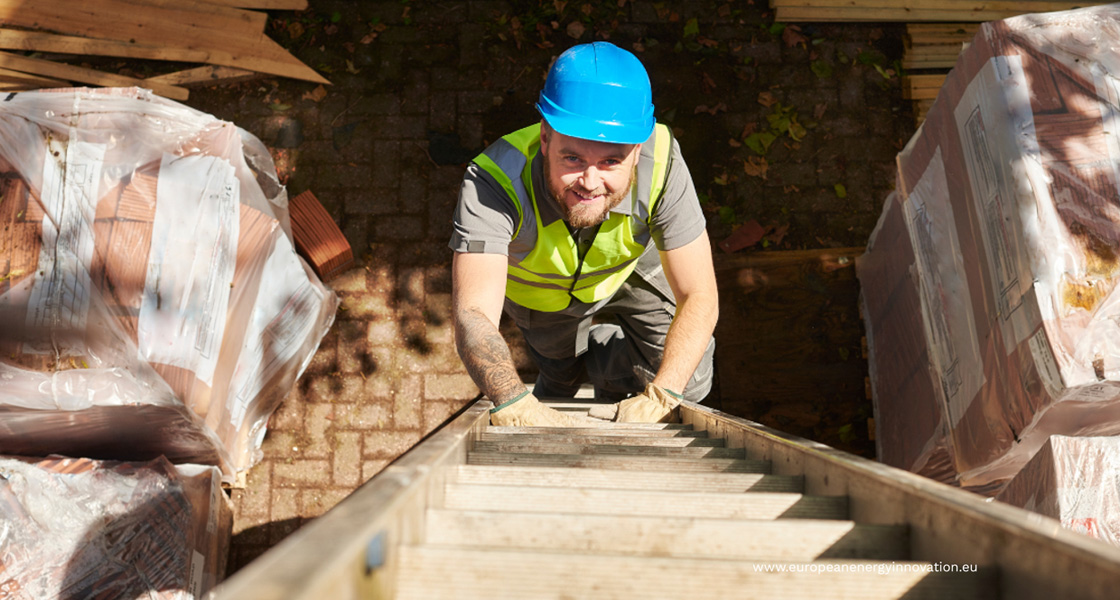A Changing World
 A constantly changing world greets us every morning as we scroll through our favourite social media and news channels. Much of the reported change does not bring hope and reassurance but speaks of the latest phase of the latest crisis. So much so, that we have coined a new word in English: permacrisis!
A constantly changing world greets us every morning as we scroll through our favourite social media and news channels. Much of the reported change does not bring hope and reassurance but speaks of the latest phase of the latest crisis. So much so, that we have coined a new word in English: permacrisis!
In the energy field, we are in the midst of the most severe prices shock in nearly 50 years, and it has been compounded by the aggression of Russia against Ukraine, with tens of millions of homes and businesses gravely concerned about how to afford their energy bills this winter.
But the world is always changing. In fact, there is no life without change, so we must constantly adapt and adjust our habits, rules, and way of life to cope with our changing world – something we have been so good at, that we are prospering and growing, now counting over 8 billion people on the planet.
A Changing Legal Context
To a large extent, the European Commission's flagship proposal for its current mandate – The European Green Deal – anticipated much of the turmoil we are going through and laid out a vision for a carbonneutral, resilient, and competitive EU by 2050. It laid the groundwork for the extensive series of revisions and recasts to EU directives and regulations that are currently under negotiation between the colegislators of the EU.
Those negotiations require skill, tenacity, and vision as they will set the framework for the coming decade in several major fields, including energy efficiency. The natural tendency for policymakers is to focus on what is around us now and act to address what can be seen. Taking this approach will not serve the current negotiations well, as by the time the revised legislation takes effect in two or three years' time, the context will have changed again.
However, we know that large scale, targeted and well-considered investments are going to be needed to achieve the objectives of the European Green Deal. This means that those who will invest – industry, owners, financial institutions – must have confidence that the legal framework in place will give predictability and clarity on how and where to invest.
This is certainly the case in the buildings sector where the Commission's own estimate is that an additional €275 billion is needed each year to scale up the energy renovation of our building stock and bring the immense energy waste in buildings to an end. Numerous studies have shown (and fresh studies confirm) that doing so will bring multiple benefits, such as greater comfort, higher value, more jobs, increased resilience and better health to society as a whole.
In her recent address (27th of October 2022) to the annual event of the Renovate Europe Campaign, President Ursula Von Der Leyen said: "Faced with war, with a fossil fuel crisis, the arguments in favour of the Renovation Wave have only become more pressing. Investing in renovation is a no regret option." She also added: "So my message is: let's accelerate. Let's put massive funds into renovation. For it is one of the best investments we can make at this moment.”
Succeeding in a Changing Context
To enable industry and building owners to act on the words of President Von Der Leyen, several steps to innovate in the energy renovation field will have to be taken in the coming two years, and the recast of the Energy Performance of Buildings Directive can be a great vehicle for those innovations.
Our call at EuroACE is to ensure that the recast directive includes:
- The introduction of well-designed and ambitious minimum energy performance standards (MEPS) that address all segments of the existing building stock. These standards, which will be introduced by our member states for our member states, will have to ensure that all buildings reach higher levels of energy performance by certain fixed dates in the future, with the final objective of ensuring they are all net zero emission buildings by 2050
- New approaches to financing that will release private financing on a massive scale. Two key tools that can achieve this are:
a. Mortgage portfolio standards (MPS) that will require banks and lending institutions to increase the average energy performance of buildings held in their portfolios are upgraded to higher energy performance standards by a certain set date in the future.
A European Renovation Loan (ERL) Scheme, backed by the European Central Bank that can provide long-term, upfront, zero-coupon loans to building owners that have little or no financial headroom to consider taking a standard loan to improve their properties
- Stimulus to encourage greater innovation in approaches to energy renovation works. This includes better data collection and dissemination, greater use of digital tools all along the value chain, industrialising the renovation process to make it cleaner, smarter and greener, generating new industrial opportunities along the way
- A revised and strengthened energy performance certification (EPC) framework so that EPC’s are more informative, reliable, and comparable across the EU. Transforming EPC's so that they can be relied on for measuring progress in the roll out of MEPS, the ERL, and MPS will bring greater stability and confidence to the stakeholders that must invest in the years ahead
Tackling the medium and longterm challenge of scaling up energy renovation in the EU, at the same time as tackling the crises that surround us, so that the tangible benefits of lower energy bills, greater resilience, comfort and health can be perceived by EU citizens as early as 2025 is an insurance against the potential of social unrest in a world were fossil fuel prices are unlikely to ever be low again.
Investing in energy renovation now, and massively, is the light at the end of the energy crisis tunnel, and it is beholden on all stakeholders in the sector to work assiduously towards that goal.
